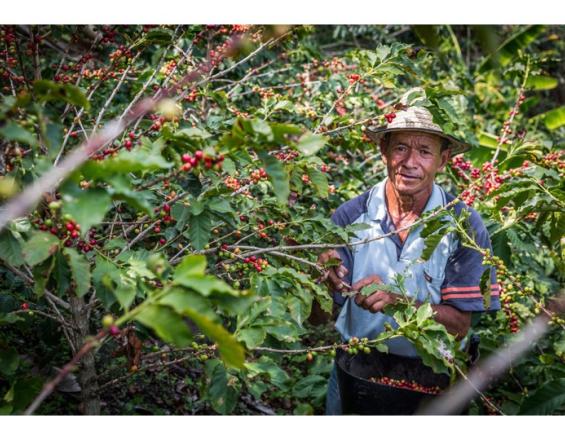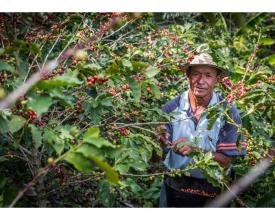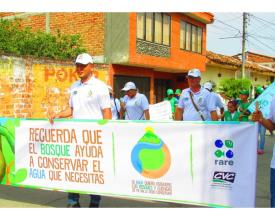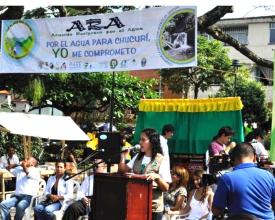
Empowering community-led sustainable management of clean fresh water through Pride for ARA methodology

Watershed management is, at its root, a human behavior challenge. But where humans are often the source of such problems, they are also the solution. Rare trains local leaders to implement behavior change campaigns that inspire communities to adopt new norms for how they interact with nature. Rare empowers communities in Colombia’s most water dependent geographies to participate in the management of their watershed ecosystems so that they benefit from higher water quality and flow and reduce the risk of droughts and floods due to extreme weather changes.
Since 2013, Rare has built the capacity of 14 officials of one of the largest regional environmental authorities of Colombia, Corporación Valle del Cauca, to engage local stakeholders in protecting riparian areas and improving land use practices using the Pride for ARA approach. These farmers are inspired by the Pride campaigns and the offer of technical assistance to protect critical ecosystems for watershed resilience.
Impacts
Using its signature methodology, Pride for ARA, Rare inspires local and national support for increased reciprocity in watershed management by bringing upstream and downstream communities together to collaboratively conserve the forests and watersheds upon which they depend. These “Pride” campaigns leave behind a legacy of technical capacity, a sense of ownership for natural resource management, and communities empowered with stronger institutions and social capital.
To date we have engaged 36 landowners to set aside 1,565 hectares for conservation and 330 hectares for sustainable farming; water quality has significantly improved; and 14 established local watershed management support CVC managing and sustaining conservation activities over the long-run. The benefits are win-win: downstream users have more regular and cleaner water while upstream farmers get compensated for improving their farming practices to help protect the watershed ecosystem. In the process, these communities have experienced a significant increase in local trust of government authorities, strengthening of local governance, and improvement in social cohesion, which will be critical in Colombia’s post-conflict era.





